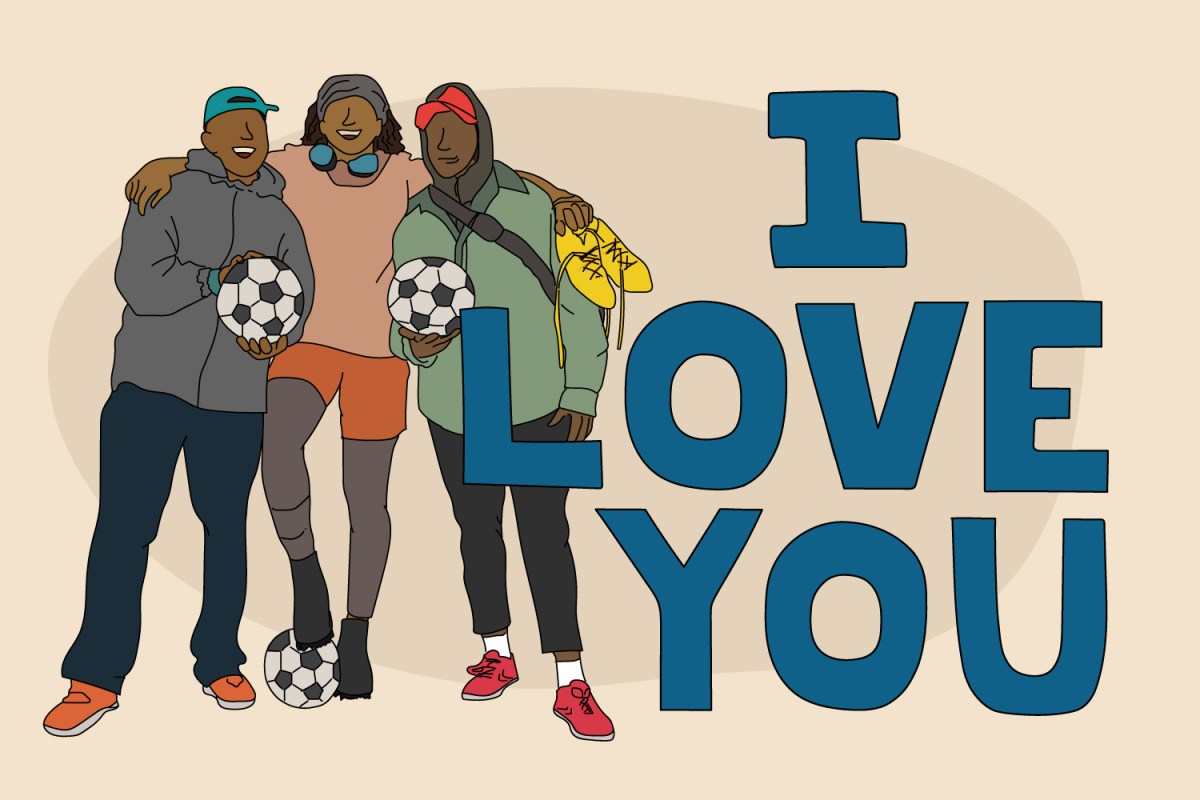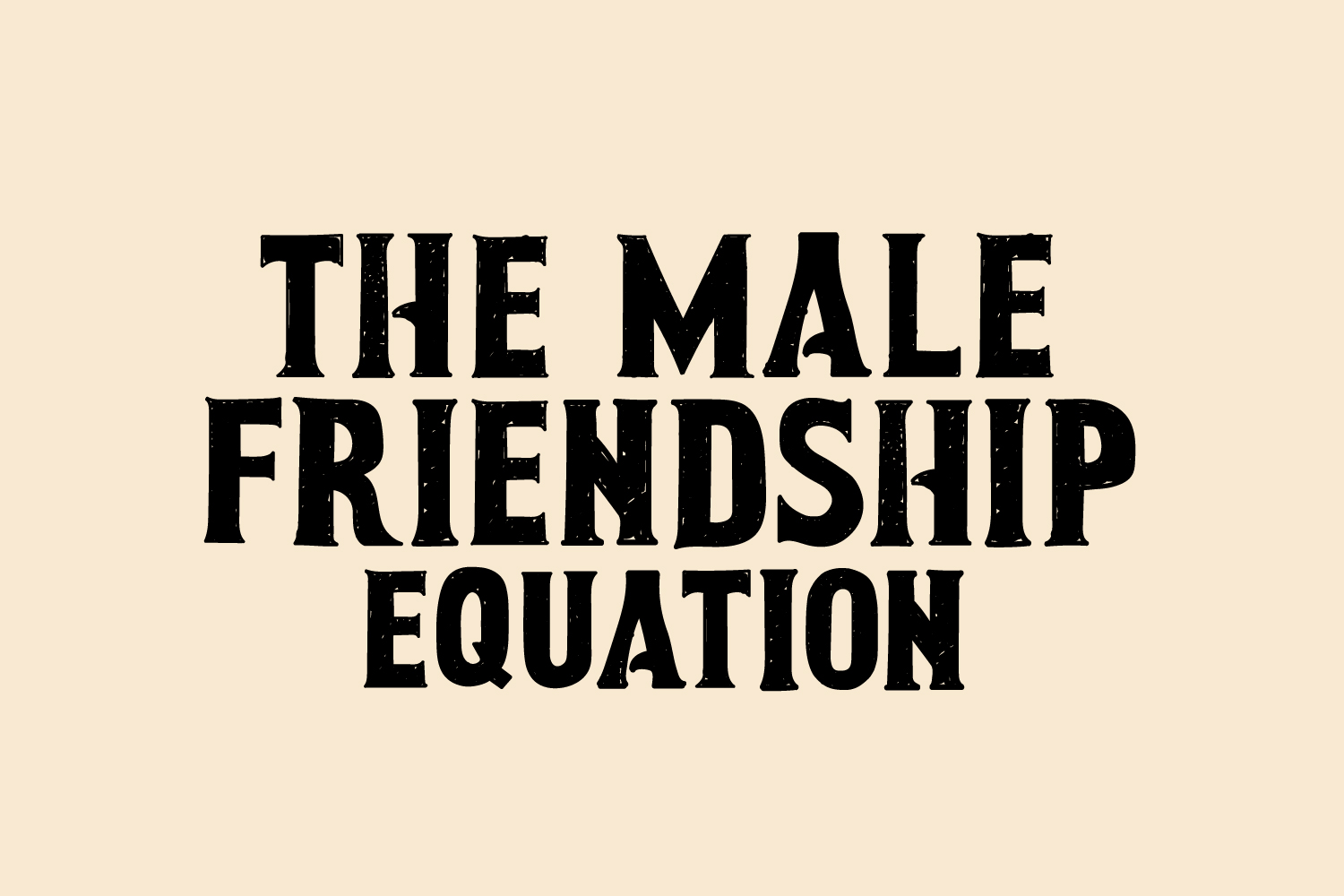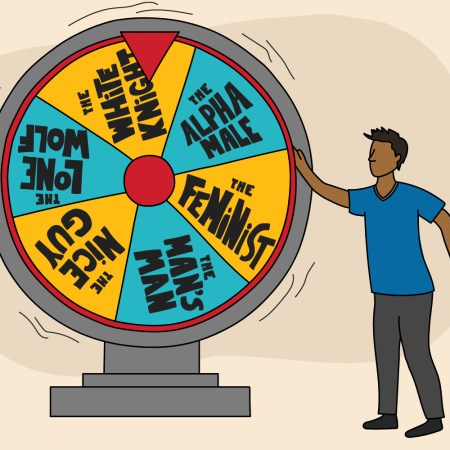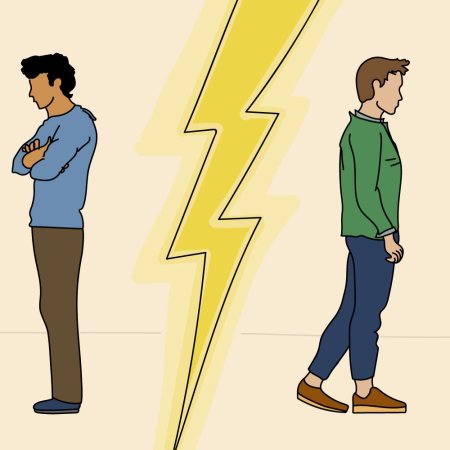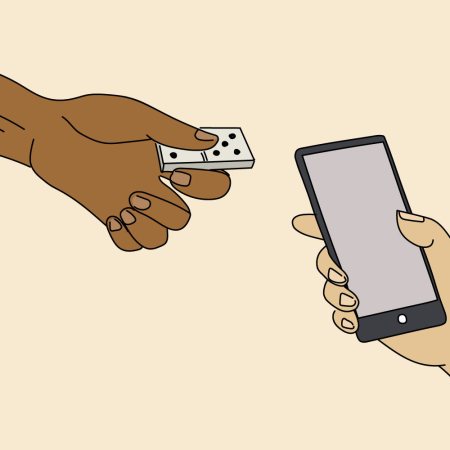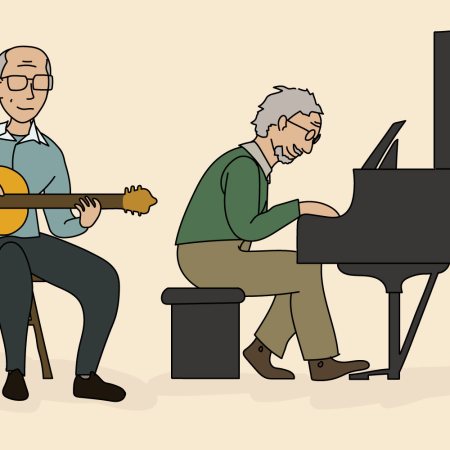During the month of April, we’re publishing a series of interviews, essays, advice columns and reported features about the male friendship crisis in the U.S., a particularly troubling slice of the country’s larger loneliness epidemic. There’s no one-size-fits-all solution, so we’re breaking it down from all angles in The Male Friendship Equation.
Over a washed-out, plum-colored pool table, a group of men bid each other farewell. Among their well wishes, “I love you” is frequently exchanged. The setting matches the sentiments. The night has been filled with lost games of pool and loud stories amid the moody confines of a Bed-Stuy bistro. Buckets of ice sit bare, empty of the varied wines they used to carry.
A woman turns to me. “Oh…y’all really say ‘I love you’ to each other?” she asks incredulously. I stand there not knowing how to respond. I thought this came naturally to everyone.
I think about my guy friends: some I’ve known since my adolescent years in Texas, some I met in the chaos of my early 20s in Colorado, and the ones with me right now in this Brooklyn wine bar that happens to have a pool table. Most of us are in our later 20s now, though a few have reached the “enlightened” threshold of early 30s. When did we start saying “I love you” to each other? In that moment, confronted by someone to whom it seemed ridiculous, it felt as if we’ve always done it. Ceaseless, like a Kahlil Gibran poem.
That’s not to say that I never before noticed how we sometimes receive side-eyes from people witnessing our affection; how others pause when they see a group of straight men unironically saying “I love you” to each other. When I mention this confrontation to my longtime friend Jason Smartt, a restorative health practitioner, he isn’t surprised.
“I think when our friend groups are in these public spaces acting as free as we do with our emotions and joy, that can raise alarm to some people,” Jason said when I called him up during a layover in Denver. “The hesitance, the raised eyebrows that sometimes follow, are just a manifestation of longstanding cultural scripts that equate emotional openness and affection amongst men with weakness.”
Historically, men have positioned themselves as rigid operatives, archetypes of a deficiency in human expression. Jason, an extremely proud “girl dad,” couldn’t be more different. During our chat, he shared with me a tender sunflower poem he wrote, an ode to his partner, Mia, and their firstborn baby girl, Nora.
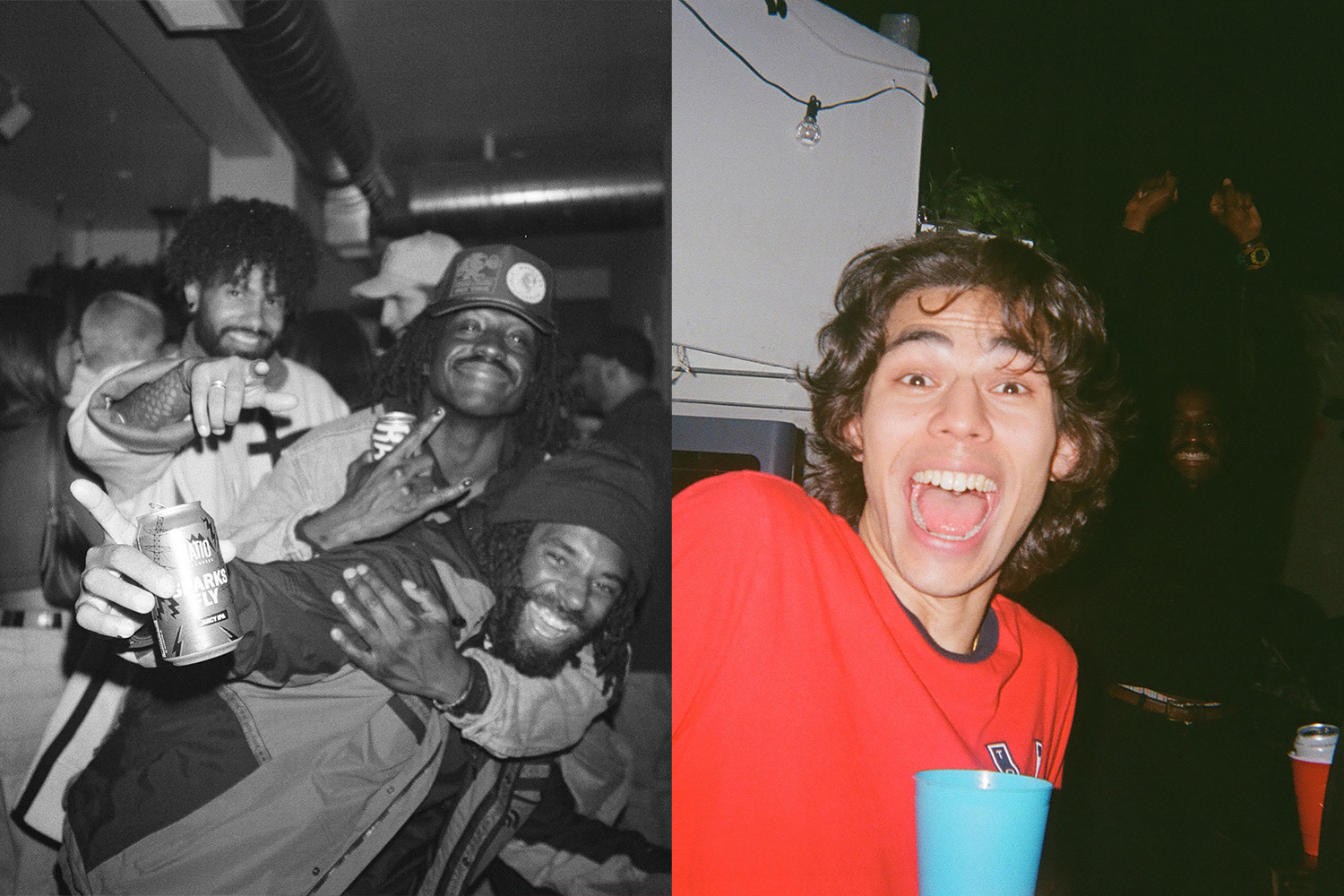
A couple days later in Jackson, Wyoming, while getting my ski and snowboard boots fitted, I caught up with an old friend, Zach Drogosch, a “retired” middle school football coach now working in tech sales. We don’t see each other as often as we did during our late-teenage years, those days of unrelenting and insatiable pursuit of adventure. From badgering our way into concerts off Rainey Street in Austin (when it was good) to taking an Uber from Louisiana all the way to Florida, our friendship has always steered towards the preposterous.
“Growing up, I always felt like, as men, we were supposed to hide our emotions,” Zach told me. “I never found it difficult to tell my family that I love them, that was commonplace, but with the fellas, I always tried to keep things light.”
Read the Full Series Here
The Male Friendship Equation: Stories, Interviews and Advice During an “Epidemic of Loneliness”
American men are in the midst of a friendship crisis, so we’re turning our attention to these all-important platonic relationshipsThrough sips of gin from a local distillery, we each opened up about the impact of navigating life with an aversion to emotional expression towards people we see more than our own families.
“At this point, my friends are more like brothers to me,” he said. “And I’ve been lucky to have great family and friends who’ve been my navigational buoys through rough seas.”
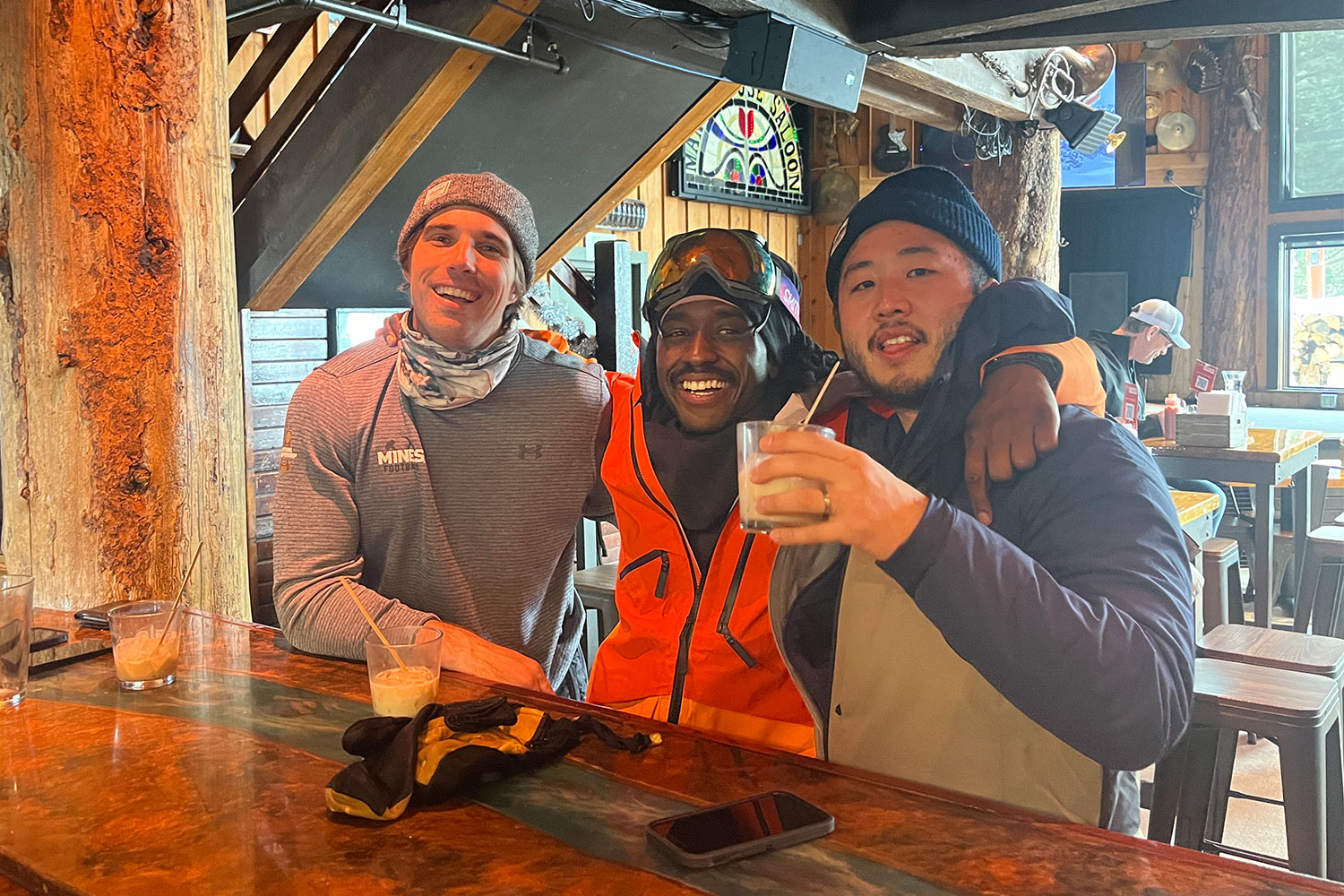
Back in New York, I peppered my friends with this same line of questioning about male friendships. John Hedrick, an actor based in Manhattan, and co-host of the Brooklyn comedy show the Shakedown, wasn’t shy about his pure love for the homies.
“In the same way I say ‘I love you’ to my parents or my siblings, I want my friends to know they’re loved too,” he explained.
John and I share a heightened awareness that it’s not enough to check in on your friends when they’re down, as we’ve both lost friends in the past few months. You need to cherish your friends vocally and often, we reflected, life’s fragility hovering over us. Yet instead of being embittered by losses, John acts on liberation. “I’m going to tell my friends how great they are while they’re here,” he said. “No matter what state they’re in — happy, sad, successful or broke — I need them to know.”
John cares in a way that coaxes those who know him into feeling at ease in being fully themselves. Whether he’s “croaking” (his words!) a Michael Jackson tune at karaoke and spurring others to dance, or checking in on someone after a break up to see what’s up, John allows all sides of his friends to open up — a hallmark necessary for deeper connections.
Admittedly, I tend to surround myself with people who don’t care about adhering to the pressures of public perception, folks who can walk into any room and light it up with their warmth and genuine affection for life. These are people who have as much fun expressing themselves as they do in wanting to understand others. These are my kind of people.
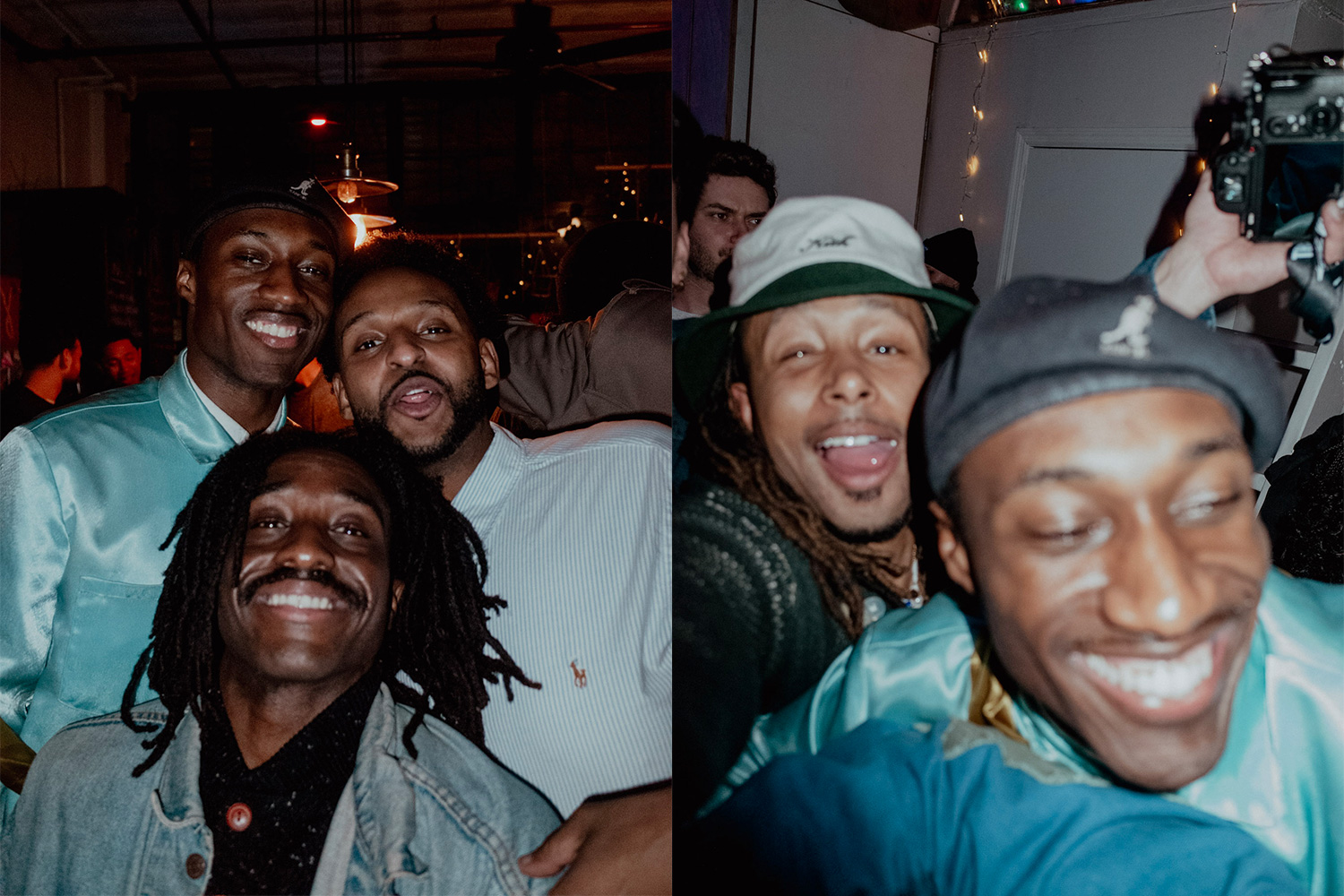
Alex Asifo — a multi-hyphenate artist whose work meshes the worlds of comedy (he’s also a co-host of the Shakedown), music and television — is also one of these people. Besides being an incredibly close friend, he’s also the anchor of our co-ed soccer team. I admire his intentionality in living a life rooted in vulnerability and gratitude. On his side, he’s cognizant that friendships don’t just happen to people, they take time and effort.
“I [prefer] to spend time with people who pour the same amount of energy and excitement into our friendship,” he wrote me in an email while on tour in Europe. That excitement, he explained, should be expressed, especially at a time when everyone either knows someone or is personally struggling with mental health. “As men, we get caught up in not giving each other compliments or overall expressing [grace] to each other.”
In the same way I say ‘I love you’ to my parents or my siblings, I want my friends to know they’re loved too.
John Hedrick
During a FaceTime call with Daddy (that’s not a nickname, but his legal birth name), a film director and my co-writer on an upcoming television project, he put forth the idea that saying “I love you” to the men in your life actively combats toxic masculinity.
“I love being loud about my love for the homies,” he professed, “especially in a city like New York where the manliest of men love to say ‘pause’ after any line that might come off as gay.”
Daddy is defiant in the face of stigmas. “My dad always taught my brother and I to love each other and to express our love for one another,” he said. “It’s never been weird for me to show gratitude and care to another man.” We geek on our admiration for artistically-inclined friend groups like Odd Future, the Lonely Island and Judd’s “Team Apatow” — troupes of carefree and expressive goofy guys who are unafraid to be themselves in public.
“When I say ‘I love you’ to my friends, I’m letting them know how much I appreciate the way they inspire me,” he added. “I also appreciate that they embrace my name with no judgment.”
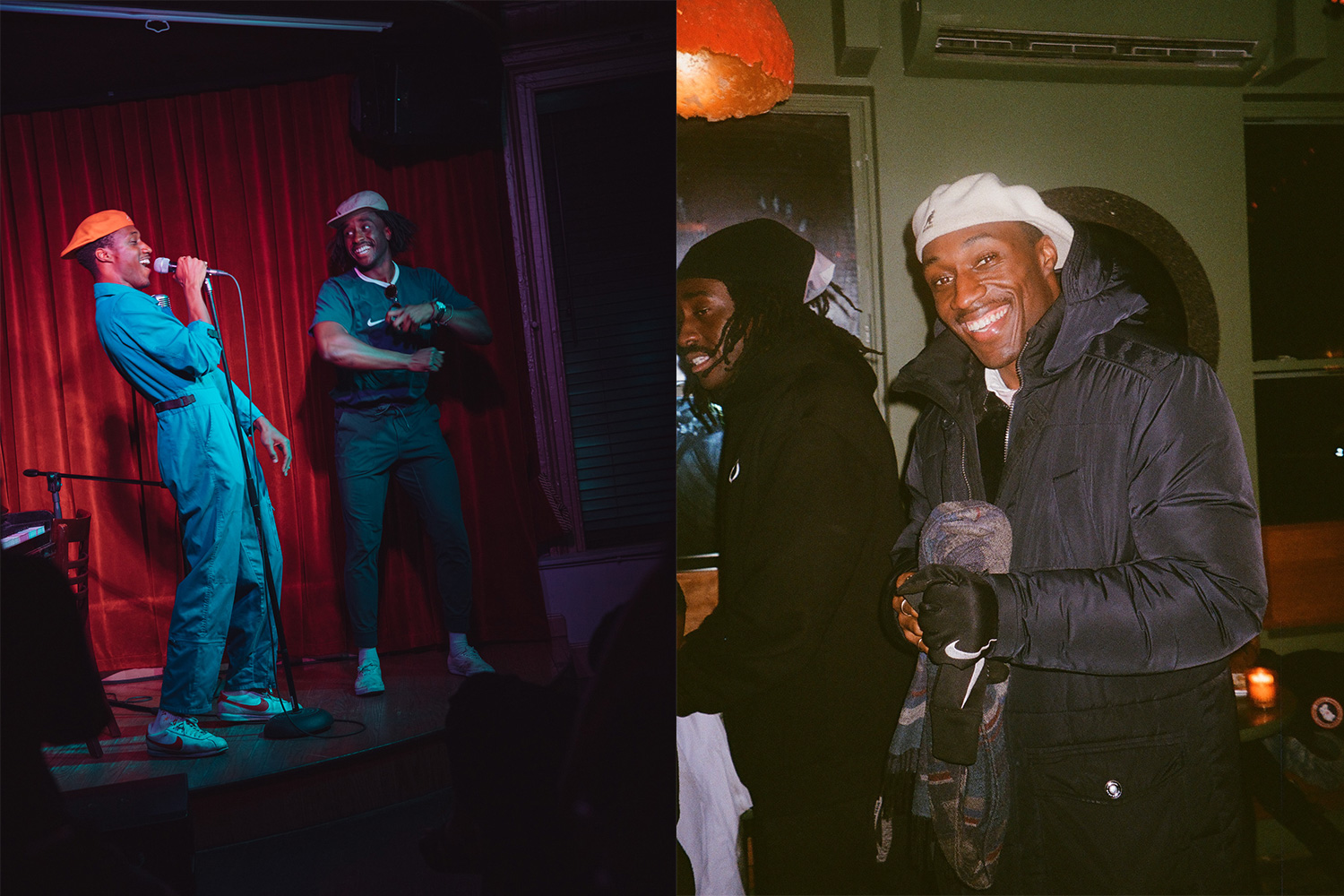
As men, we inherit the discomforts of the past. We observe depictions of ultra-masculinity that present themselves as the standard, when it’s far from the full scope of what it means to be masculine.
Momo, a writer based in New York, told me about his journey with his father from actionable to vocalized love. Being Sudanese, his father showed his love for his son through material provisions, but never through words — until Momo made a point to change that. While studying abroad in Italy, after months away from family, he was at the end of a phone call with his father when he decided to say “I love you” for the first time. His father replied, “Okay.”
Momo admits that the moment was strange for both of them. “The conversation ended there, and it was not hurtful to hear it back,” he said. “It was actually cathartic.” His father would eventually say it back a few phone conversations later during that semester abroad. They haven’t stopped saying it since.
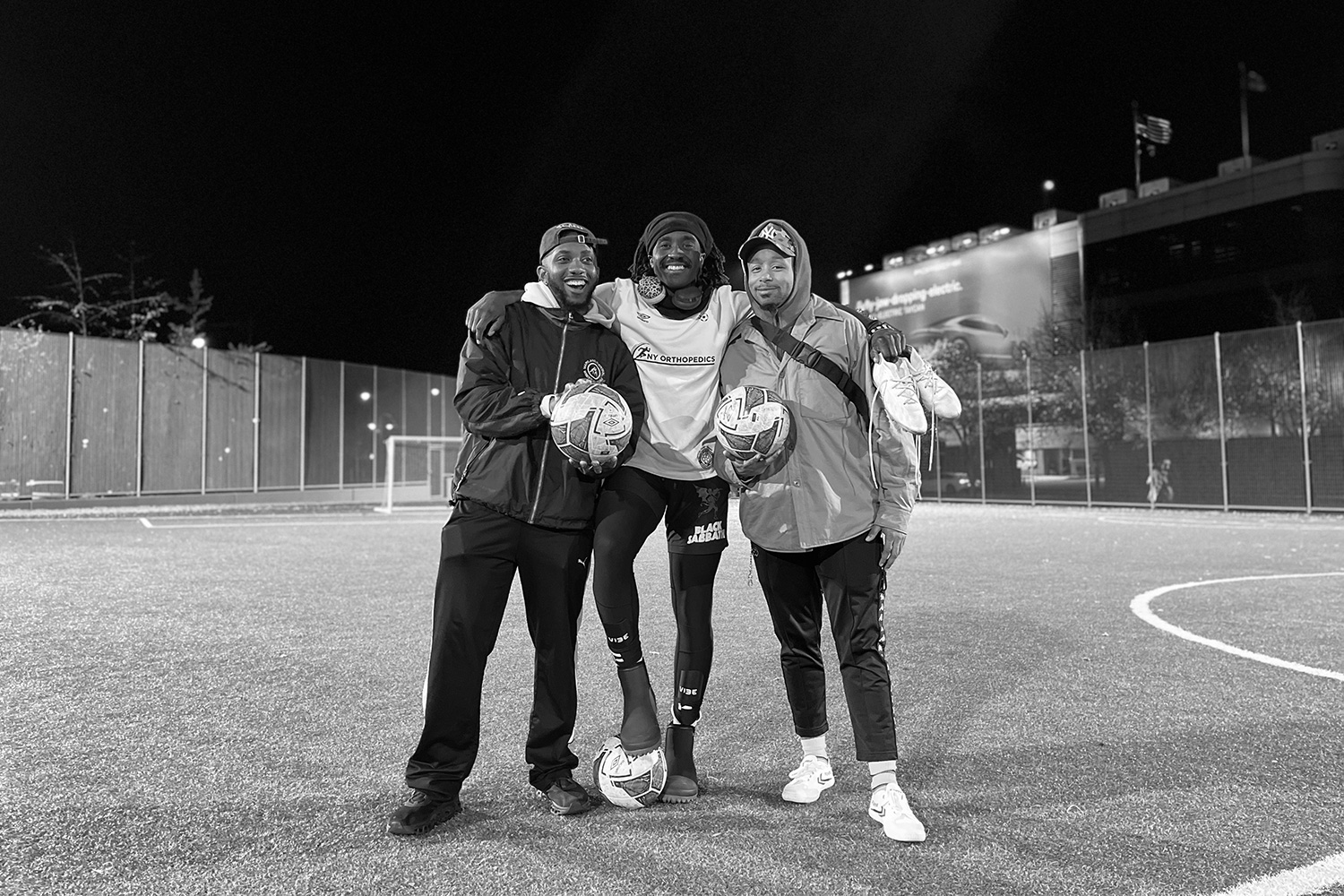
So what do we do about those weird looks we get when we say “I love you” to our platonic male friends? For the guys I’ve been fortunate to love, we keep it moving. Those people don’t know us and, quite frankly, who gives a fuck? One of the most impassioned people in my life, Ben Ramazani, a music producer, who I’m proud to call a close friend, believes words have the power to unlock our souls.
“Being in touch with our emotions as well as having a balance of mental toughness is key to understanding ourselves and humanity,” he told me. You can tell Ben means it when he says “I love you.” It’s a statement he uses to show he appreciates a person’s identity and to honor their existence.
That acknowledgment echoes something Jason told me when I was in Denver: “Saying ‘I love you’ to the homies provides a thread, a space, a mirror of bold affirmation.” It means “I see you and I’ve got you.” At least among my friends, we have no intention of lightening the sincerity of our love.
The Charge will help you move better, think clearer and stay in the game longer. Subscribe to our wellness newsletter today.
